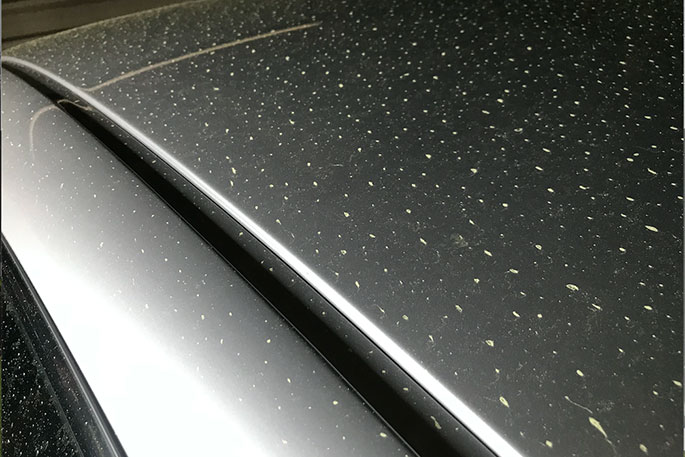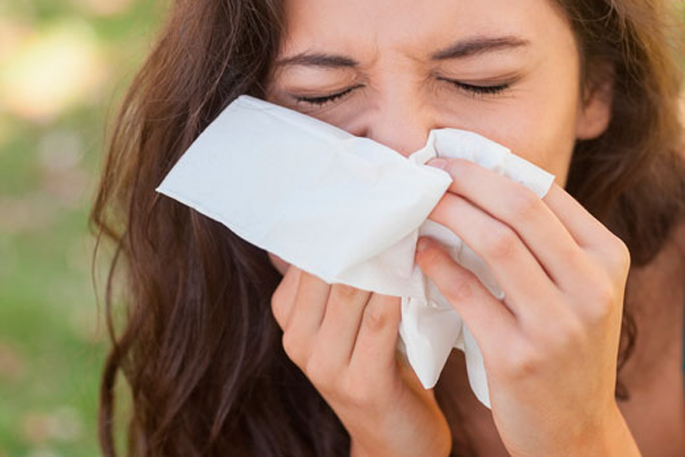Hay fever season could be worse than usual, with experts predicting El Niño will kick pollen production into overdrive.
For many New Zealanders hay fever is a minor annoyance causing itches and sniffles, but for some it can be debilitating.
Allergy NZ chief executive Mark Dixon says the worst symptoms could trap people indoors.
"They struggle to get out of bed.
"The pain in their sinuses, at the front of their forehead, and high in their nasal cavity, there's so much pressure there that they can't go to work."
Dixon says many countries included pollen counts in their weather forecasts.
"We need hard data.
"It would be really useful to have [forecasters] read pollen counts around the regions so that people who are allergic to pollen can organise and manage their day differently."
While countries like Australia and Japan use sensors to broadcast up-to-date measures of pollen in the air, New Zealand doesn't.
Dr David Fountain lives in a small house on the outskirts of Palmerston North, surrounded by plants and trees.
He is MetService's Pollen Forecaster. "You'd think I'd have good scientific equipment available to do that."
"But I use phenology, which is old-fashioned observation. It's knowledge based on 40 years of watching plants and trees."
Dr Fountain says his method had been refined over his decades of experience as a Botanist at Massey University.
"I'm surrounded by plants that I watch.
"Pine is a good example of what I can predict, pine started [releasing pollen] where I am at the very end of July - I could see it, visually."
"Up north it was a week or so earlier, and down south I have people who report to me."
After a wet year throughout New Zealand, El Niño was expected to bring hot and dry weather.
Dr Fountain says the change in temperature is likely to jump start the pollen season.
"The El Niño situation will bring an ehanced pollen season.
"It's likely to be accelerated and higher."
 Pollen is already causing havoc for some people.
Pollen is already causing havoc for some people.
That isn't all.
"In the future, with climate change, increased carbon dioxide results in increased temperatures, longer pollen seasons, maybe pollen seasons that start earlier and end later."
Other experts are asking the Government to invest in pollen sensors to collect more precise data.
Professor Rewi Newnham, head of Victoria University's School of Science in Society, says New Zealand is behind the times.
"Pollen sensing or monitoring, measuring pollen in the air, that's something that happens routinely in many parts of the world.
"We just haven't really, for whatever reason, had the capacity or the wherewithal to do it in New Zealand."
University of Auckland pharmacy researcher Amy Chan said sensors in Australia were gathering valuable data.
"The Brisbane pollen sensor was able to show that the amount of pollen they were getting was triple the amount they were getting a decade ago.
"That's the sort of data we would like to know for New Zealand."
Last year Dr Chan set up her own sensor for the university.
"We established a pollen sensor on the top of Auckland Museum, which will provide the first airborne pollen measuring we've had in New Zealand since 1988."
But Dr Fountain says the sensors might not be worth the cost. "Personally I think it's overrated.
"Any funding would best be put into the bio-chemical side of pollen, which is the allergens themselves, and the clinical side, the effect of the pollen on the respiratory system."
Dr Fountain said pollen contained proteins that many people were allergic to, causing cold-like symptoms when ingested.
"Pollen grains are dry, and the first thing they do on contact with any wet surface is take up water.
"Proteins come out into the water, and this is what happens in our nose. The proteins in almost all instances are allergenic."
He says just 10 per cent of trees released pollen into the air, with most spreading their pollen through insects or other means.
"Our Māori population, before colonisation, probably had no hay fever at all," he says. "All of our pollen, 99 percent, comes from introduced European species."
Dr Amy Chan says demand for antihistamines and other allergy medications are keeping her busy in her secondary role as a pharmacist.
"With increasing winter pressures, and post-Covid, the workforce we need to meet the demand isn't sufficient.
"We've seen quite a few pharmacies close down as well, so that's putting a lot of pressure on the profession."
Amy Chan says hay fever sufferers should start taking medication early to boost their protection, and recommended wearing a mask outdoors to block pollen.
Dr Fountain agrees.
He says masks are especially popular in Japan, where clouds of pollen from the native cedar trees would sweep over cities and cause sneezing fits.
"They effectively cut out pollen from getting into our lungs."



2 comments
Pollen
Posted on 19-09-2023 15:28 | By campmother
And they are planting good farmable land in Bl*#**dy PINE TREES !!!! There will be a lot more problems with all the pollen from this big mistake.
Health benefits
Posted on 20-09-2023 21:28 | By JeffMcKenzie
Most people in NZ are WRONG about pine pollen being the culprit. It's unfairly blamed because it is seen visually in such yellow abundance in NZ every spring time. In fact pine pollen is apparently good for health and has been consumed for thousands of years in Japan and China for immunity and libido benefits. The real culprit is the pollen from wattle, birch and grasses. Look it up !!
Leave a Comment
You must be logged in to make a comment.